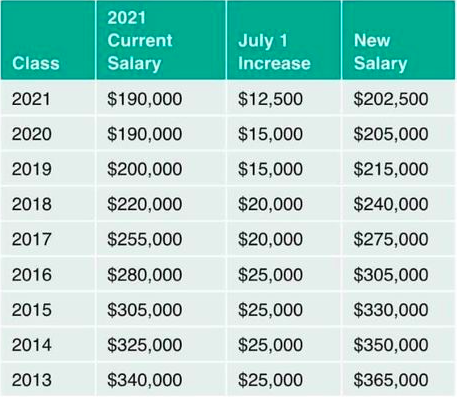Pride Month is a good time to take stock of the state of anti-discrimination laws affecting lesbian, gay, bisexual, transgender, and queer (LGBTQ) people. The past year has brought some unprecedented wins, including the momentous June 2020 Supreme Court ruling in Bostock followed by a January 2021 Executive Order with long-awaited anti-discrimination protections. At the same time, violence against transgender people – particularly individuals of color – is on the rise, and more than one in three LGBTQ Americans report that they faced discrimination of some kind in the past year, including more than three in five transgender Americans, according to the Center for American Progress.
Last year, the Supreme Court held in Bostock v. Clayton County that discrimination because a person is LGBTQ is discrimination “because of sex” under Title VII of the Civil Rights Act (CRA) of 1964, the federal law prohibiting employment discrimination. The landmark case pulled together three cases involving individuals who lost their jobs: Gerald Bostock, a social worker for a county in Georgia, who was fired after joining a gay softball league; Aimee Stephens, a funeral director whose employer terminated her after she informed them that she was transgender and planned to come to work as the woman she is; and Donald Zarda, a skydiving instructor, who lost his job after talking to a customer about his same-sex relationship.
In “Because of Sex”: The Supreme Court, Federal Sex Discrimination Law, and Best Practices for Protecting LGBTQ Workers, a One-Hour Briefing available on-demand from the Practising Law Institute (PLI), James D. Esseks, Director of the ACLU LGBTQ & HIV Project, noted that the plaintiffs in Bostock “have made an enormous difference in the lives of LGBTQ people all across the country.” In short, their arguments successfully demonstrated that in each case, they faced discrimination “because of sex” as defined by Title VII.
If Mr. Zarda had been a woman discussing her relationship with a man, or if Ms. Stephens had been assigned female at birth and dressed traditionally as a woman, they would not have lost their jobs – their employers fired them for traits or actions they would not have considered if it weren’t for their sex. Therefore, the Court found, “it is impossible to discriminate against a person for being homosexual or transgender without discriminating against that individual based on sex.”
When the CRA was signed over 50 years ago, Esseks observed, Congress wasn’t considering the many ways in which “discrimination on the basis of sex” would be defined in coming years. But decisions in recent decades on issues such as sexual harassment and stereotyping based on “masculine” or “feminine” traits have shown Title VII’s broad relevance, and Bostock now confirms that sexual orientation and gender identification are also protected.
In addition to its immediate impact in the workplace, Bostock made an impact in other areas of federal sex discrimination law, explained Julie Wilensky, Senior Staff Attorney, National Center for Lesbian Rights, in the PLI briefing. As Justice Alito observed in his dissenting opinion in Bostock, provisions of the Education Amendments Act of 1972, the Fair Housing Act, the Affordable Care Act, and dozens of other federal statutes explicitly prohibit sex discrimination under Title VII. By extension, these statutes should also protect LGBTQ individuals. Following the Bostock ruling, however, the Trump administration made it clear that it had no plans to extend Title VII protections to LGBTQ individuals in the workplace or elsewhere.
On his first day in office, President Biden signed an Executive Order on Preventing and Combating Discrimination on the Basis of Gender Identity or Sexual Orientation. Described by the Human Rights Campaign as “the most substantive, wide-ranging LGBTQ executive order in U.S. history,” the EO calls for immediate implementation of Bostock.
Significantly, the EO addresses the intersection of various types of discrimination, stating: “Discrimination on the basis of gender identity or sexual orientation manifests differently for different individuals, and it often overlaps with other forms of prohibited discrimination, including discrimination on the basis of race or disability. For example, transgender Black Americans face unconscionably high levels of workplace discrimination, homelessness, and violence, including fatal violence.” Declaring that it is the Biden administration’s policy to address overlapping forms of discrimination, the EO calls on all federal agencies to review their policies and address any areas inconsistent with this policy.
So far, agencies have taken heed: The Departments of Housing and Urban Development (HUD), Health and Human Services (HHS), and others have announced their plans to formally prohibit discrimination on the basis of sexual orientation and gender identity.
For more on Bostock and how employers can protect the rights of LGBTQ workers, view PLI’s One-Hour Briefing. To learn more about this important topic, sign up for PLI’s Employment Discrimination Law & Litigation 2021. PLI’s Pro Bono Scholarships are available for qualifying organizations and individuals.
 Practising Law Institute is a nonprofit learning organization dedicated to keeping attorneys and other professionals at the forefront of knowledge and expertise. PLI is chartered by the Regents of the University of the State of New York and was founded in 1933 by Harold P. Seligson. The organization provides the highest quality, accredited, continuing legal and professional education programs in a variety of formats which are delivered by more than 4,000 volunteer faculty including prominent lawyers, judges, investment bankers, accountants, corporate counsel, and U.S. and international government regulators. PLI publishes a comprehensive library of Treatises, Course Handbooks, Answer Books and Journals also available through the PLI PLUS online platform. The essence of PLI’s mission is its commitment to the pro bono community. View PLI’s upcoming live webcasts here.
Practising Law Institute is a nonprofit learning organization dedicated to keeping attorneys and other professionals at the forefront of knowledge and expertise. PLI is chartered by the Regents of the University of the State of New York and was founded in 1933 by Harold P. Seligson. The organization provides the highest quality, accredited, continuing legal and professional education programs in a variety of formats which are delivered by more than 4,000 volunteer faculty including prominent lawyers, judges, investment bankers, accountants, corporate counsel, and U.S. and international government regulators. PLI publishes a comprehensive library of Treatises, Course Handbooks, Answer Books and Journals also available through the PLI PLUS online platform. The essence of PLI’s mission is its commitment to the pro bono community. View PLI’s upcoming live webcasts here.
 Staci Zaretsky is a senior editor at Above the Law, where she’s worked since 2011. She’d love to hear from you, so please feel free to email her with any tips, questions, comments, or critiques. You can follow her on Twitter or connect with her on LinkedIn.
Staci Zaretsky is a senior editor at Above the Law, where she’s worked since 2011. She’d love to hear from you, so please feel free to email her with any tips, questions, comments, or critiques. You can follow her on Twitter or connect with her on LinkedIn.





 Olga V. Mack is the CEO of
Olga V. Mack is the CEO of 
 Kathryn Rubino is a Senior Editor at Above the Law, and host of
Kathryn Rubino is a Senior Editor at Above the Law, and host of 









